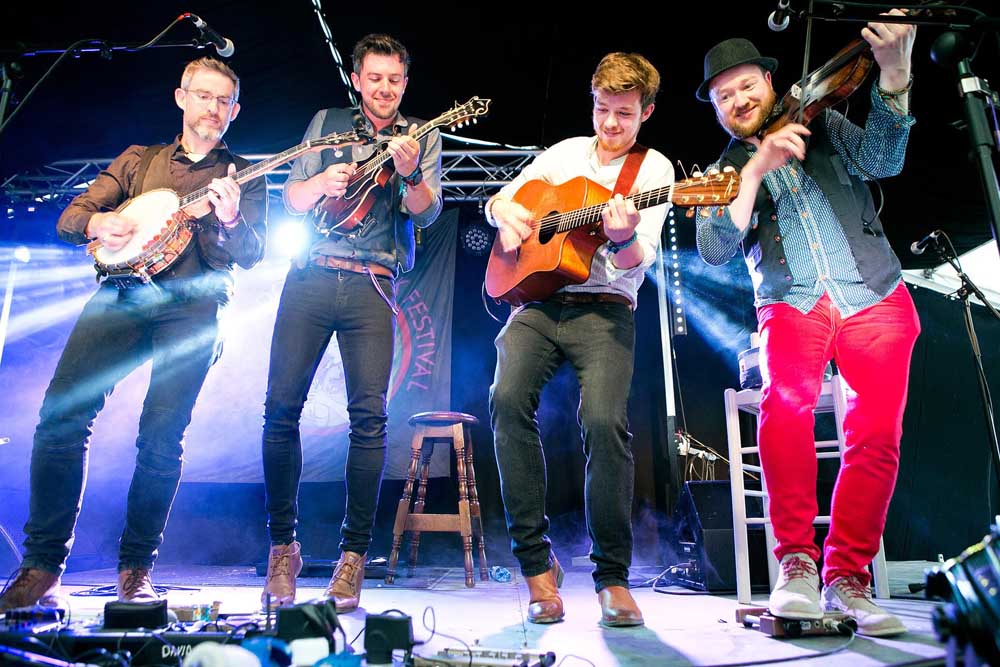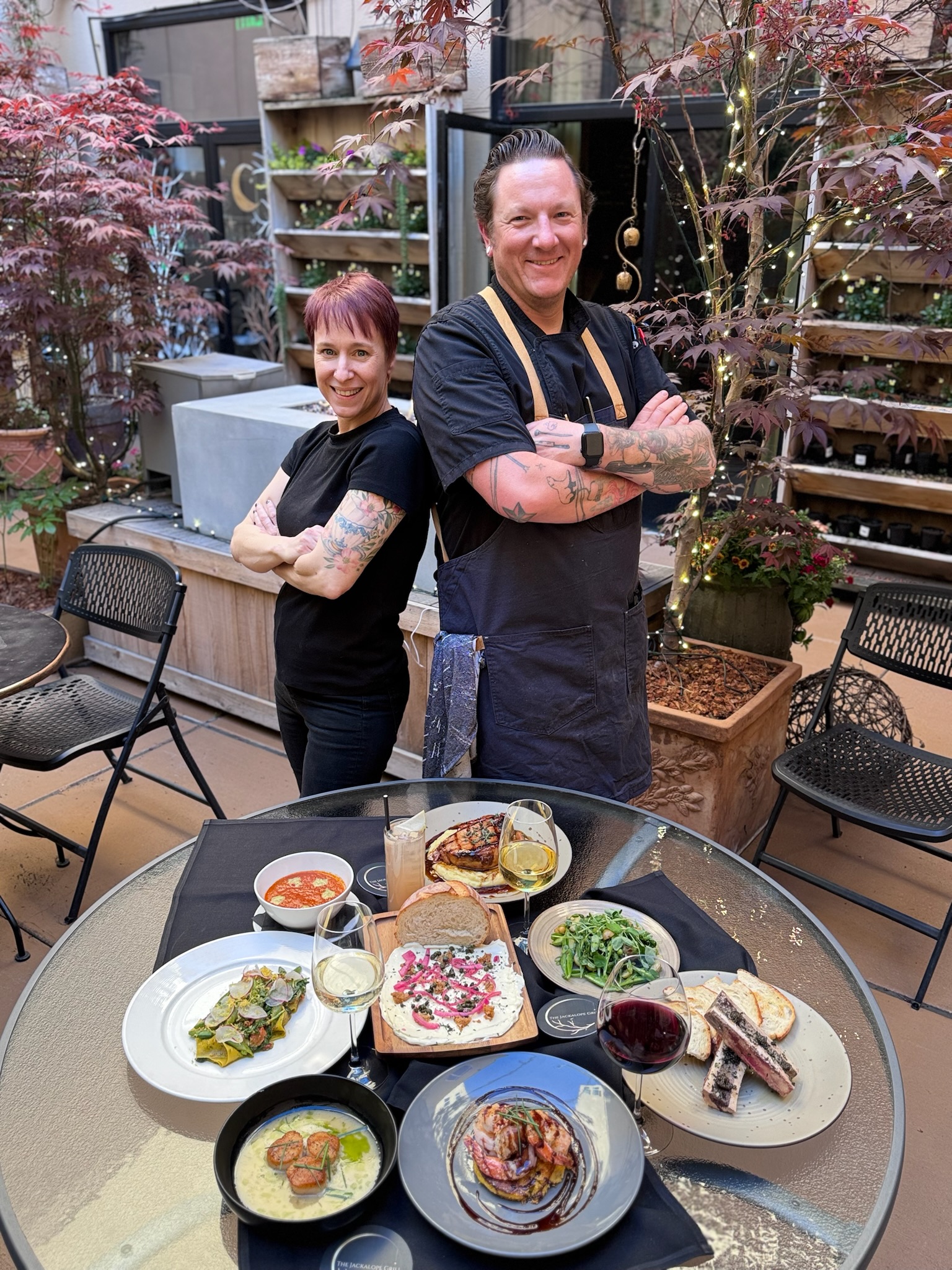We Banjo 3 brings celtgrass to Sisters
Published 12:00 am Thursday, February 8, 2018

- We Banjo 3 will blend Celtic and bluegrass traditions Monday at the second show in the Sisters Folk Festival's Winter Concert Series at Sisters High School. (Yvonne Vaughan Photography/Submitted photo)
The members of We Banjo 3 often call their band’s music “celtgrass.”
The term seems self-explanatory: The two sets of brothers that make up the band have spent the last seven years exploring the intersection between the traditional music of their native Ireland and bluegrass, using the acoustic instruments common to both styles — including, yes, lots of banjo — and their own varied influences as starting points. That energetic mix, which has been honed over one live and three studio albums, has caught the attention of music fans in Europe and America — including former President Barack Obama, for whom the band performed in March 2016.
But don’t call We Banjo 3 a fusion band. Martin Howley, who primarily plays banjo and mandolin in the group, prefers to think of celtgrass as a new genre.
“We tried playing Irish music when we grew up, and then we evolved into playing more bluegrass and Americana and roots music because the instruments naturally lend themselves to that,” Howley said recently during a break from recording sessions for the band’s upcoming fourth studio album. “And we felt like we never wanted to be a fusion group — you know, people who just on a very surface level put two musics together. We really want to seamlessly fuse the two. … You’re not in Ireland or America; you’re hovering somewhere between the unique soundscapes. So that’s what we were aiming for.”
The band’s third studio album, 2016’s “String Theory” — which features a mix of original compositions, traditional Irish and bluegrass tunes and a few (relatively) modern folk covers — is the closest the band has come to achieving that goal, Howley said.
“This sounds so punny now, and I’m feeling bad about it — it’s like a quantum leap in terms of our actual playing together,” he said.
The quartet — also featuring Howley’s younger brother David Howley on guitar, vocals and banjo; fiddler Fergal Scahill; and banjoist/mandonlinist/tenor guitarist Enda Scahill — will return to Central Oregon on Monday, finally making its Sisters Folk Festival debut at the organization’s Winter Concert Series at Sisters High School. Fans may remember the band was scheduled to perform at last year’s festival, which was canceled — a first in the festival’s history — due to smoky conditions from wildfires in the region.
Though augmented with stand-up bass and horns throughout “String Theory,” the group will stick to its core membership for this tour, dubbed the Earth & Sky Tour, which kicks off Friday in Kent, Washington.
“We like to think that it makes perfect sense mathematically: a band called We Banjo 3, and there’s four of us,” Martin said with a chuckle.
The name was more fitting in the band’s formative stages, when it was just David and Martin Howley and Enda Scahill jamming banjo tunes in Enda’s kitchen. All three had extensive musical resumes, with multiple All-Ireland championships among them, according to the band’s website. Enda worked with Ricky Skaggs and The Chieftains. Martin played the Grand Ole Opry at age 19, and David was pursuing a solo career.
“We just wanted to celebrate banjo music; that’s all it was,” Martin said. “We knew each other for years — obviously, Dave and I were brothers. Enda’s been a big influence in our lives; he’s a few years older, and he’s a friend and mentor. He said, ‘I was at this show, and I heard these two blues guitarists playing together, and they seemed to be having great fun, and I thought we should do that.’”
The band went through various incarnations with different fourth members. When the group had an opportunity to perform at the Milwaukee Irish Festival in 2012, it added Fergal Scahill on fiddle in order to beef up its sound for a bigger stage.
“We were playing in this big, huge, wide-open stage, so we talked about it and we said, ‘You know what? We should add Fergal … to the lineup because he’ll just bring so much sound,’” Martin said. “We joke onstage; we say we needed to add a real musician. But the fiddle has such a legato tone that it binds the whole thing together and smooths out the cracks between the more staccato string instruments. … There was a spark — a little bit of extra magic that just came through — and we went, we need to make that happen.”
Soon after, David moved primarily to acoustic guitar, leaving Enda and Martin as the band’s primary banjoists. That evolution has been natural, Martin said, and occasionally, the band will still feature three and even four banjos in a song.
“I think it’s actually illegal in a lot of countries to play more than three banjos at the same time — it’s like a human rights thing,” Martin quipped. “But no, we have, we have. There’s kind of basically a banjo museum — we have tons of banjos at home. … There’s some really cool things you can dig into when you’ve got four instruments going in the same tone setting.”
The quartet is looking to further the advances it made on “String Theory” with its upcoming album with producer Frank Marchand, who is the band’s live sound engineer. For the first time, the band is recording all-original songs written during and inspired by its travels over the last few years, especially in the U.S. Hope and refuge are the main themes, Martin said.
“America has this youthful exuberance and optimism that really is just captivating. We felt that the first time we came here, we tapped into it,” Martin said. “And then with all that’s been happening recently, we’ve really felt that music has been a really important thing for people to come and escape from the things that divide them, and try and unite themselves. We have people who come to our gigs who normally would never see each other in their daily life, and they connect on this deep, almost spiritual level through the music. … It’s magic, you know.”






